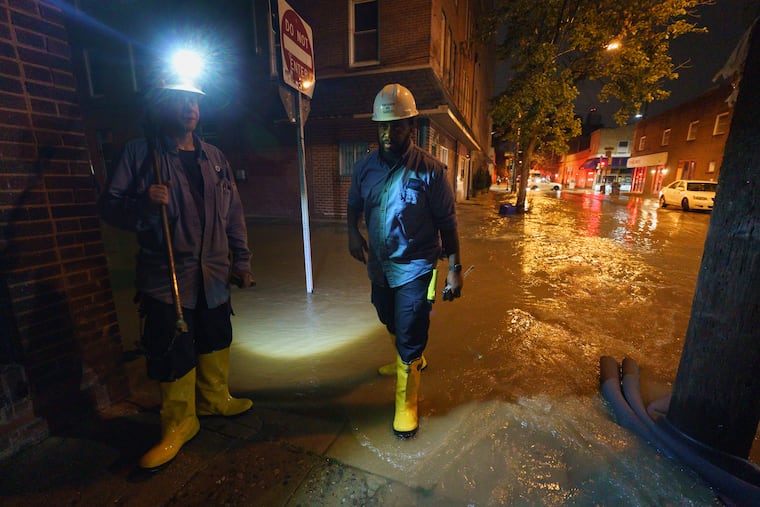Good-paying PGW jobs would be irreplaceable if Philly moves away from natural gas | Opinion
If the city were to eliminate natural gas as a source of energy and heat, more than one thousand unionized employees of PGW would likely lose the economic stability of their current jobs.

The more than one thousand workers of Philadelphia Gas Works have been supplying natural gas to residents of Philadelphia for 185 years. PGW has long been a vehicle to provide good-paying, stable jobs to residents of the city’s poorest neighborhoods. Philadelphians know PGW workers and rely on us to provide an essential service: heating Philadelphia’s homes. Most members of UWUA Local 686 have made this our only career, staying until retirement while honing the unique skill of maintaining the city’s heating infrastructure and providing natural gas to consumers.
Recently, the City of Philadelphia published a study looking at diversification options for PGW — ways for the company to generate revenue that are not natural gas. While the union recognizes the dangers from climate change and is an advocate of steps to reduce emissions while protecting PGW’s workforce and Philadelphia’s low-income residents, we believe that most of the alternatives set forth in the study ignore key priorities that city officials identified in its outreach to members of the community and stakeholders. This mainly includes “safeguarding low-income households” and “retaining PGW’s workforce and creating new opportunities for jobs and economic growth.” The current diversification proposals are in direct contrast to these stated goals and both the workers and the poor have been left out of the equation.
If the city were to eliminate natural gas as a source of energy and heat, all of these good jobs would be lost and could not be replaced with a viable alternative. For the 1,150 unionized employees of PGW, that would mean losing the economic stability that these jobs have provided — and critical benefits such as health care.
Working on live gas, repairing broken mains and dangerous leaks, and safely restoring service require a unique skill set that cannot be duplicated anywhere else. Altering the type of power supplied is not like changing a product on an assembly line. Our skills are unlike those in any other kind of utility industry, and with the proposed changes, our workforce will be abandoned, just as will an entire network of underground gas mains. Local 686 members enjoy a base wage rate for gas utility workers based on industry standards, along with a pension and strong family health care. These benefits exceed those of most public-sector workers and will likely not be duplicated by the few replacement jobs that could be created.
The study recommends looking into electrification or geothermal heating as alternatives to natural gas. Following these recommendations would single-handedly guarantee that Philadelphia’s poorest residents cannot keep warm in winter or place hot meals on their tables. Customers would be required to pay for the replacement of natural gas heating equipment with expensive fuel heat pumps and electrical appliances along with the necessary upgrading of wiring and higher-capacity circuit breakers, and then face the higher average monthly cost of electric energy. These strategies would result in an unjust transition. Good union jobs would be lost, and an even greater financial burden would be placed on Philadelphia’s poorest residents.
The only strategy discussed in the diversification study that appears to meet all the professed goals for the future of PGW — reducing harmful emissions, protecting the workforce, and protecting the poor — is the use of Renewable Natural Gas sources, such as injecting biogas, hydrogen, or synthetic natural gas into the PGW gas system. These Renewable Natural Gas sources would reduce the impact of greenhouse gas emissions while maintaining the existing infrastructure. While we cannot endorse it at this time, this strategy is worthy of further consideration to determine whether it is a viable alternative to natural gas.
The union intends to remain a partner with the city and PGW in conversations about the future of the utility, and whether a just transition can occur, so long as the goal to “maintain a financially sound utility that continues to maintain safety and reliability and sustain good union jobs in Philadelphia” is met.
Unless and until the city can craft a strategy where thousands of workers are not suddenly unemployed and without health care, one of the most critical goals that the study identified will not have been met and PGW’s reputation as a partner of organized labor will be tarnished.
Keith Holmes is the president of the Gas Workers Employees Union Local 686, UWUA.